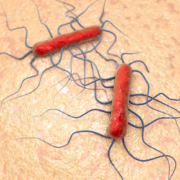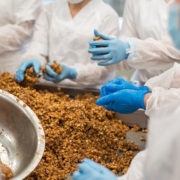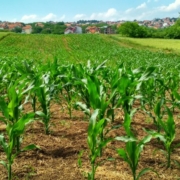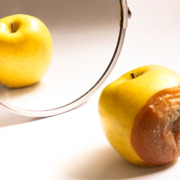On the 23rd of August 2021, a civil society organization, HOMEF together with 101 others released their voices against the UPO91-based Plant Variety Protection Law. This law was earlier rejected by similar organizations in Ghana. With this recent rejection, its clear more African countries will soon come on board. The rejection was based on issues like subsuming small holders’ rights under the breeders’. It is more annoying when the law did not recognize the need for public consultation and stakeholder input before put it in place. For more on this, please read on….as prepared by HOMEF
23 August 2021
The Secretary General
The International Union for the Protection of New Varieties of Plants (UPOV)
Genève 20, SwitzerlandDear Mr. Daren TangPetition: Nigerians Reject the UPOV-91 Based Plant Variety Protection Law
The undersigned coalition of farmers, Civil Society Organisations (CSOs), researchers, youth and women groups representing millions of Nigerians and Africans have denounced the adoption of an UPOV91 based Plant Variety Protection (PVP)law in Nigeria. They demand that Nigeria withdraws the law and adopt a sui generis law based on the peculiar agriculture system in the country.
The provisions of the Act at section 43(2) contravenes the Constitution of Nigeria and its validity is already challenged in the law court. The Registered Trustees of Health of Mother Earth Foundation supported by over 50 organisations filed a lawsuit challenging the undemocratic process and the inconsistency of the UPOV based PBR law with the Nigerian constitution and have sought an order of perpetual injunction restraining the Ministry of Agriculture and Rural Development by themselves, their agents, servants, workmen or otherwise whatsoever from carrying out any activity or further activity pursuant to section 43(2) of the Plant Variety Protection Act 2021. The lawsuit seeks a declaration that section 43(2) of the Plant Variety Protection Act 2021 is illegal, invalid, null and void and contrary to the letters and spirit of Sections 6 and 36 of the 1999 Constitution of the Federal Republic of Nigeria (as amended in 2011).
We believe that the Plant Variety Protection (PVP) Bill which was signed into law by the Nigerian President, Muhammadu Buhari on 25 May 2021 and which allows Nigeria join the International Union for the Protection of New Plant Varieties (UPOV-91) fails to take into account the particular seed and agricultural context of the country.
The law creates an environment where Intellectual Property Rights override farmers’ rights and commercial seed trumps farmers and indigenous seed systems; marginalizes farmers and not only breaches fundamental principles of international law, but also constitutes a discrimination vis-à-vis farmers and their seed systems.
Conformity of the Nigerian PVP law with UPOV 1991 is bound to have dire consequences for a country where 80% of the farming population consists of small-scale farmers who conserve and improve plant genetic resources and who depend on traditional practices of saving, reusing, exchanging and selling farm-saved seed for their livelihoods.
Analysis have shown that the Nigerian PVP Law places severe restrictions not only on the use of farm-saved seed (propagating material) but extends to harvested material (e.g., grain) and even further to products made directly from harvested material (e.g., milled maize) obtained through the use of harvested material.
In addition, the extensive scope of breeders’ rights will restrict others from using protected varieties for research and breeding purposes. Restrictions to freely save, use, exchange and sell farm-saved seed/propagating material have dire implications particularly as these are essential components of farmers’ rights.
The Nigerian PVP law fails to recognise farmers’ contributions, or give them rights vis-à-vis, farm-saved seed, without forcing them to pay royalties. It does not enable farmers to develop new varieties (e.g by selection) on the basis of the protected varieties, or save, exchange and sell the propagating material. Thus, the premise of the law is only on strengthening breeders’ rights and marginalising and exploiting small-scale farmers in Nigeria.
Section 49 of the Act allows the applicant to declare some portion of the application to be confidential. This is not acceptable. The PVP Act 2021 including the regulations must define what is considered confidential information, particularly since disclosure of origin is not required as part of the application and grant procedure. Limiting access to information provides loopholes for biopiracy and also makes it difficult for a member of the public or any person opposing an application to do so without having read the relevant information.
The process of development of the PVP law was illegitimate, with no public hearings and lack of consultations and participation of smallholder farmers. This is in contrast to the Nigerian Constitution of 1999 which provides for democracy and social justice as per Article 14 (1) and 14(2) (c ).
Smallholder farmers have expressed disappointment over the focus of the government on protecting the rights of breeders over the rights of and support to the smallholder farmers who produce the bulk of the food the nation consumes and who have been custodians of food over the years. They condemn the criminal sanctions on farmers if they duplicate or share seeds registered under this law adding that the current informal system of farming which allows farmers freely share, sell and reuse seeds will be disrupted by this law.
We reject the UPOV-91 Convention because it doesn’t fit the Nigerian context it is designed by countries where agriculture is a business rather than a way of life. Such countries have a tiny fraction of the population involved in agriculture which is of the industrial type whereas a majority of our population is involved in Agriculture with over 80% being small holder farmers.
The UPOV regime does not provide equal protection for all as it is difficult or impossible for farmers to claim protection over the materials they have been using overtime. There is no recognition of collective ownership, only individual, private ownership, and procedures are designed for corporations.
Recent studies and experience in countries where the UPOV 1991 Act has been adopted have shown how dysfunctional the PVP system is and that it has had very little impact on introduction of foreign novel varieties in the OAPI region. The PVP system has not delivered on the promises of food security and nutrition but restricts the use of protected varieties in the exchange and sale of farmer-saved seed/propagating material which have implications on farmer managed seed systems, farmers’ rights and ultimately, human rights.
We demand that:
• Nigeria should not accede to UPOV and its 1991 Act. Instead Nigeria should conduct a thorough, objective and realistic multidisciplinary assessment of the local situation which takes into account the kind of seed supply system in place, the extent to which farmers freely save, exchange and sell seed/propagating material, the type of domestic seed industry and the existence of public breeding, the current domestic breeding capacity, international obligations applicable (CBD, Nagoya Protocol, ITPGRFA, human rights, etc.), and relevant national objectives and policies (e.g., on nutrition, food security, poverty reduction, agriculture). Nigeria doesn’t have a bilateral trade investment agreement that expressly mandates it to accede to the UPOV 1991 Convention.
• The Plant Variety Protection Act, 2021 should be recalled and replaced with a sui generis law based on the African Model which addresses the peculiar challenges in Agriculture in an all-inclusive and mutually benefitting way. The Nigerian government should take into account international obligations of which it is party to such as the CBD and the ITPGRFA including other measures required to support implementation of these.
• Small holder farmers are the backbone of Agriculture in the country and thus should be adequately supported in terms of favourable policies; infrastructure; extension service; credit schemes; access to land etc. for improved productivity.
• We demand support for farmer managed systems (FMSS), farmers’ rights and our human rights.
• We demand a democratization of our food system, promotion of local solutions and sovereignty for our small holder farmers.
• The government should ensure support and autonomy of public breeding research institutions as these breed varieties for farmers and have an obligation to the public.For more information you can reach:
Nnimmo Bassey: nnimmo@homef.org
Mariann Bassey-Orovwuje: annybassi@yahoo.com
Joyce Brown: joyce@homef.orgThis was endorsed by:
1. Health of Mother Earth Foundation (HOMEF)
2. GMO-Free Nigeria Alliance
3. Corporate Accountability and Public Participation for Africa (CAPPA)
4. Nigerians Against GMOs
5. Environmental Rights Action/Friends of the Earth Nigeria (ERA/FoEN)
6. Nigeria Women Farmers Association (NIWAAFA)
7. We the People
8. BFA Food and Health Limited
9. Association of Women Farmers of Nigeria
10. Women and Youth in Agriculture
11. Udama Co-operative Farm
12. Green Alliance Nigeria
13. Women& Children Life Advancement Initiative
14. The Young Environmentalist Network (TYEN)
15. Peace Point Action
16. Social Action
17. Committee on Vital Environmental Resources (COVER)
18. Gender and Environmental Risk Reduction Initiative (GERI)
19. Eco Defenders Network
20. Urban-Rural Environmental Defenders (U-RED)
21. Host Communities Network
22. Youth and Small Holder Farmers(YOSHOFA)
23. Women Environment Programme (WEP)
24. Lekeh Development Foundation (LEDEF)
25. Nigeria Coal Network (NCN)
26. Global Prolife Alliance
27. Neighborhood Environment Watch Foundation
28. Socio Economic Research and Development Centre
29. Community Forest Watch
30. Niger Delta Development Initiative
31. Kallop Humanitarian and Environmental Center
32. Citizens Information and Development Initiative
33. Relief International Africa
34. Social Accountability and Environmental Sustainability Initiative
35. Institute of Human Rights and Humanitarian Law
36. Greenleaf Advocacy and Empowerment Center
37. Foundation for the Conservation of the Earth
38. Media Awareness and Justice Initiative
39. WastePlus Environmental Services
40. Visible Charity Global Foundation
41. Ogoni Youths Development Initiative
42. Rivers Indigenous NGOs and Civil Society Network
43. Masses Interest Coalition
44. Rivers Network of NGOs
45. Ofure Centre for Peace and Development
46. Foundation for Conservation of Nigerian Rivers
47. Egbema Voice of Freedom
48. Grass to Amazing Favour Global Foundation
49. Rivers Community Content Initiative
50. Jelu New Breed Foundation
51. Rivers Civil Society Organisations
52. BINEC Herbson Development Foundation
53. Angel Support Foundation (ASF)
54. Community Development Advocacy Foundation (CODAF)
55. Egbema Voice of Freedom
56. BRACED Union, Edo State Chapter
57. Center for Environment, Human Rights and Development(CEHRD)
58. ANPEZ Center for Environment and Development
59. Society for Women and Youth Affairs (SWAYA)
60. Pius Dukor Foundation for Community Development and Advancement
61. Canaan Peace, Women and Community Development Initiative (CAPWOCODI)
62. Kallop Humanitarian and Environmental Center
63. Center for Environment, Media and Development Foundation (CEMEDEC)
64. Foundation for Environmental Rights Advocacy and Development(FENRAD)
65. Niger Delta Women International Resource, Environment and Development Center (NDWIRED CENTER)
66. Public Enlightenment Projects (PEP)
67. Greenskill Acquisition Centre Ltd
68. Centre for Justice, Empowerment and Development
69. Centre for Rural Emancipation, Economic and Social Development
70. Child and Green Foundation
71. Sunshine Progressive Youth Alliance
72. Kebetkache Women Development and Resource Centre
73. Rural Health and Women Development
74. League of Queens International Empowerment
75. Alauchi Women Development Initiative
76. Media Awareness and Justice Initiative (MAJI)
77. Rights advocacy & development center (RADEC)
78. The African Centre for Biodiversity (ACB)-South Africa
79. Alliance for Food Sovereignty in Africa (AFSA)-Uganda
80. The African Biodiversity Network (ABN)-Kenya
81. West African Association for the Development of Artisanal Fisheries (ADEPA)-Senegal
82. Coalition for the Protection of Africa’s Genetic Heritage (COPAGEN)
83. West African Committee of Peasant Seeds (COASP)-Senegal
84. Comparing and Supporting Endogenous Development (COMPAS Africa)
85. Eastern and Southern Africa Small Scale Farmers Forum (ESAFF)-Tanzania
86. Fahamu Africa
87. Groundswell West Africa
88. The Fellowship of Christian Councils and Churches in West Africa (FECCIWA)
89. Inades-Formation
90. The Indigenous Peoples of Africa Co-ordinating Committee (IPACC)-South Africa
91. Young Volunteers for the Environment (YVE)-Togo
92. Participatory Ecological Land Use Management (PELUM)-Uganda
93. La Via Campesina (LVC)-Zimbabwe
94. World Neighbors-USA
95. Network of Farmers ‘and Producers’ Organizations in West Africa (ROPPA)
96. Rural Women’s Assembly (RWA)
97. The Southern African Faith Communities’ Environment Institute (SAFCEI)-South Africa
98. PROPAC-Cameroon
99. African Union of Consumers (AUC)-Chad
100. Regional Schools and Colleges Permaculture Programme(ReSCOPE)-Zimbabwe
101. Biowatch South Africa
Comment
Safe Food and Feed Foundation aligns with the stand of HOMEF and the 101 stakeholders
Dele Fapohunda
25 August, 2021





